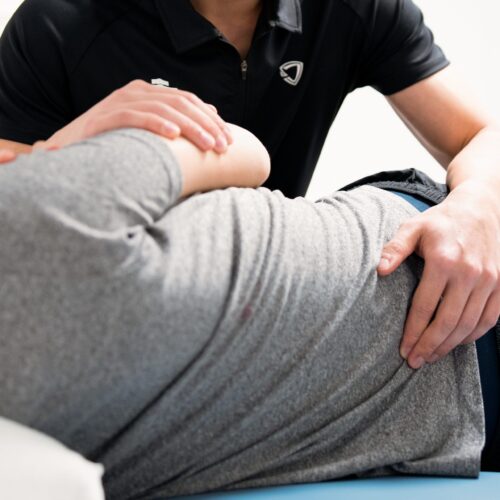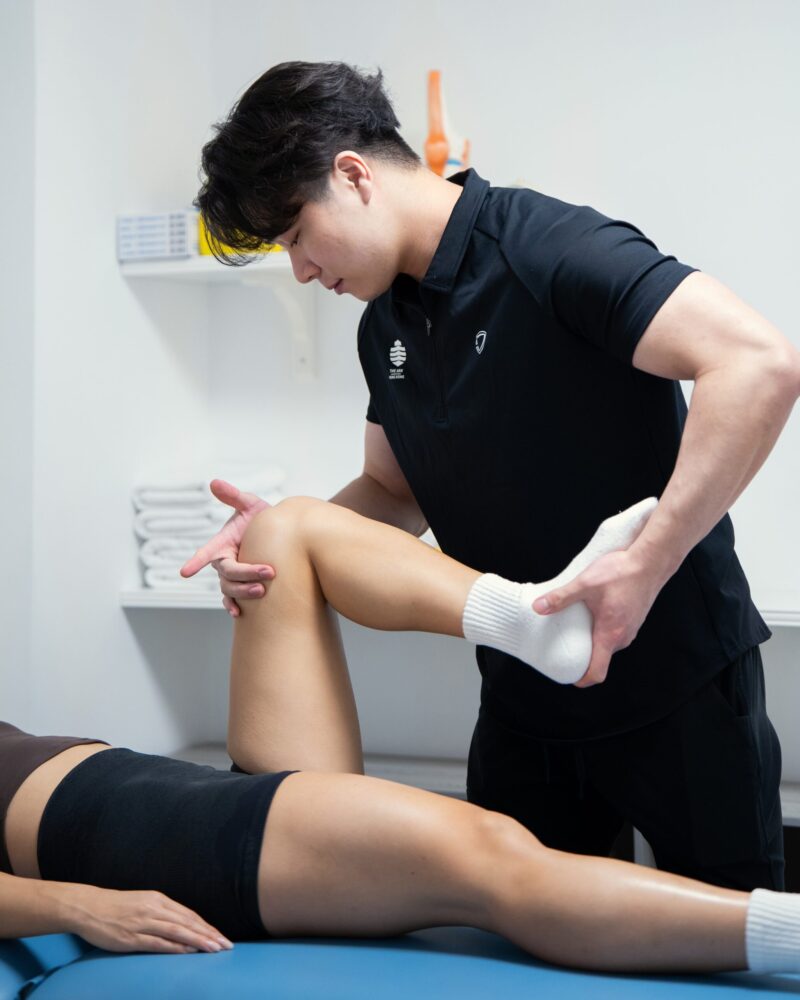
PHYSIOTHERAPY
What is Physiotherapy?
Physiotherapy is a healthcare profession that focuses on promoting physical movement, reducing pain and improving overall quality of life. Our highly trained physiotherapists assess, diagnose, and treat a wide range of physical conditions and injuries.
Personalised Treatment Plans in Physiotherapy
At the heart of physiotherapy is a personalised approach to care. Our physiotherapists take the time to conduct an initial assessment of each individual’s condition, medical history and physical function. Based on this assessment, they develop a tailored treatment plan, which may include a combination of manual therapies, therapeutic exercises, stretches, dry needling, ultrasound therapy, shockwave therapy and education.
The Physiotherapy Approach: From Assessment to Recovery
Our physiotherapists use a variety of techniques and interventions to achieve these goals, including:
-
Assessment and Evaluation:
Our physiotherapist assesses the patients’ range of motion, strength, flexibility, posture and overall functional abilities. Our physiotherapist may also consider the person’s medical history, lifestyle and specific goals.
-
Treatment Planning and Pain Management:
Our physiotherapists develop personalised treatment plans tailored to an individual’s specific needs and goals. The treatment plan may include a combination of manual therapy, therapeutic exercises, dry needling, ultrasound therapy and shockwave therapy. They may also educate you on self-management strategies and lifestyle changes to better cope with your pain.
-
Functional Training:
Our Physiotherapists focus on improving functional abilities and daily activities. They may provide guidance on proper body mechanics, posture and ergonomics. This helps to prevent further injuries and optimise performance. This applies to activities such as walking, running, lifting and sports-specific movements.
-
Rehabilitation and Recovery:
Physiotherapists play a crucial role in the rehabilitation after surgery, injury or illness and our physiotherapists aim to provide patient-centred care to enhance individuals’ quality of life.
Physiotherapy: A Holistic Approach for All Ages and Conditions
Physiotherapy offers a comprehensive approach to healthcare, providing benefits for individuals of all ages and dealing with a wide range of conditions. These include:
- Musculoskeletal injuries
- Neurological disorders
- Sports injuries
- Chronic pain
- Cardiovascular and respiratory conditions
- Postoperative rehabilitation
Whether you’re a young athlete recovering from a sports injury, an older adult managing chronic pain, or someone dealing with a neurological disorder, physiotherapy can help you achieve optimal health and well-being.

FAQ: Physiotherapy
It’s recommended to wear comfortable and loose-fitting clothing that allows easy movement and access to the area being treated. Depending on the condition, the physiotherapist may request you to change into appropriate attire, such as shorts or a tee, to facilitate assessment and treatment.
Physiotherapy treatments are generally aimed at reducing pain and improving function; however, some techniques or exercises may cause temporary discomfort or muscle soreness. It’s important to communicate openly with our physiotherapist about any pain or discomfort you experience during the session, as they can adjust the treatment to ensure your comfort and safety.
Yes and physiotherapy is not only beneficial for individuals seeking preventive care, performance enhancement or general physical well-being. Our physiotherapists can also provide guidance on exercises, posture correction, ergonomic advice and load management to help you maintain optimal physical function and prevent future issues.
Our physiotherapists use hands-on techniques to address musculoskeletal issues. These may include joint mobilisation or manipulation, soft tissue mobilisation, trigger point release, stretching and manual resistance exercises, etc. Manual therapy helps improve joint mobility, reduce pain and enhance tissue healing.
Our physiotherapists prescribe specific exercises aimed at improving strength, flexibility, endurance, balance and coordination. These exercises can be tailored to address specific conditions, rehabilitate injuries or enhance overall physical fitness. Our physiotherapist guides the individual through proper exercise techniques and progressions to reach the best results.
Our physiotherapists will insert the needles into specific areas of the body, such as trigger points or areas of muscle tension. The needles are inserted directly into the soft tissues. These include muscles, tendons or ligaments. The insertion is usually quick and relatively painless. However, some individuals may feel a brief discomfort or twitch response.
Our physiotherapists use a transducer to produce sound waves. The sound waves generated by the transducer can penetrate the skin and be absorbed by the underlying tissues. The waves cause microscopic vibrations at the cellular level, which generates heat and promotes various physiological effects in the treated area. Ultrasound therapy helps with pain relief and increased blood flow. It also helps with tissue healing and repair, reduces muscle spasms, increases range of motion and breaks down scar tissue and adhesions.
Our physiotherapists place the probe of the shockwave device against the skin over the treatment area. Then, they start delivering shockwaves. The device generates high-energy sound waves. It transmits the waves into the body’s tissues. Shockwave therapy stimulates various physiological responses in the treated tissues. This includes enhanced blood flow, pain reduction, tissue healing and regeneration.
